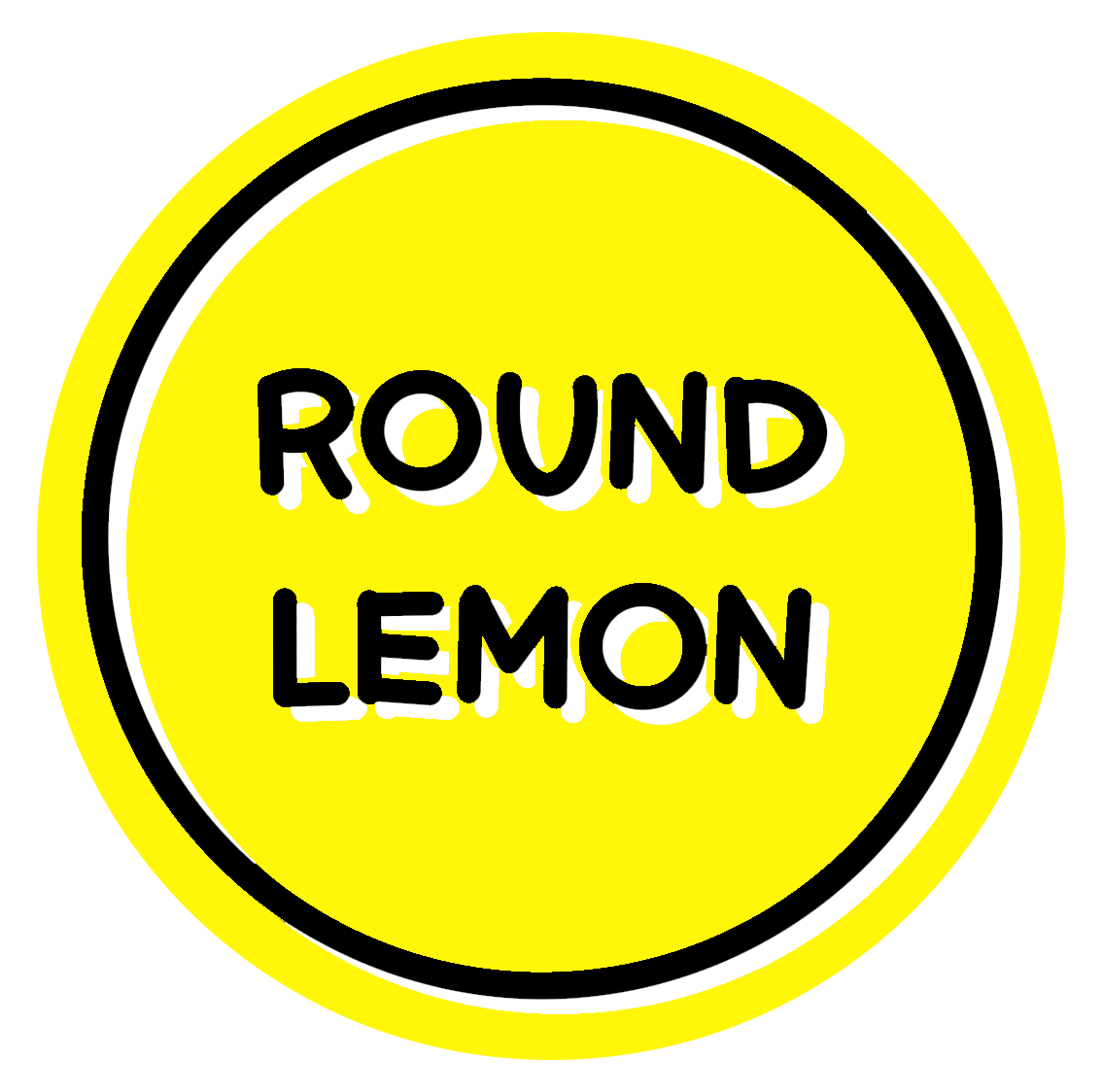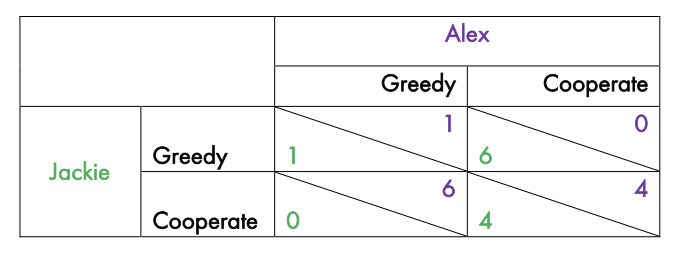The Prisoner’s Dilemma and Equilibrium
Part 1 of ‘Mind Stretching’: a series aiming to debunk game theory concepts, whilst encouraging you to expand your creative horizons.
The prisoner’s dilemma is maybe the most popular game theory concept, and one explanation of it could be the following:
Alex and Jackie are kept in separate rooms, unable to communicate. They both love cookies. Each of them has the option to gain a certain amount of cookies. This number is influenced by their decision AND the other one’s decision.
They are given two options: to cooperate or be greedy – without knowing what the other will choose.
If they both decide to cooperate, they will each get 4 cookies.
If they both decide to be greedy, each of them will receive only 1 cookie.
But if one decides to cooperate and the other decides to be greedy, the one who decided to cooperate will get nothing whereas the other one will receive 6 cookies.
In a table, the potential outcomes are:
Each of them could be thinking: “Hmmm, if I cooperate I could get 4 cookies; but there is a risk of getting no cookies if the other one decides to be greedy. Ooh! What to do?! I love cookies! The thought of getting no cookies is unbearable”.
“But if I decide to be greedy, and if the other decides to be greedy as well, I will still get a cookie – which is more than no cookies. Also, if I decide to be greedy and the other one decides to cooperate – I WILL GET SIX COOKIES!!! And I love cookies!!! My impulses are pushing me to be greedy”.
John Nash, an American mathematician, argues that the rational decision is to be greedy. Economists agree with him. In the game theory world, they even named this decision - of being greedy - “Nash Equilibrium”, in his honour.
From a mathematical perspective, it makes sense. You eliminate the risk of getting no cookies, and there is also a chance of getting 6 of them. If you don’t know the other person, and you have a short-term perspective in life, being greedy is probably the better option. The economists’ consensus that being greedy represents the “equilibrium” might be one of our societi’s flaws.
John Nash even demonstrated, mathematically, how being greedy is the right decision. But life is too complex to be defined as a mathematical equation.
Most of our interactions are repetitive. Your reputation and future interaction will be affected by your current decisions. Every decision you make speaks a thousand words.
If you sacrifice the best outcome for all of us on this occasion, you create a precedent. Everyone will know you are a greedy bastard and will not want to collaborate with you in the future. Moreover, probably even worse, is that in the future, the only ones willing to collaborate with you will be other greedy bastards.
You are creating an environment with a narrow horizon (short-term perspective), and toxic (people just as greedy as you are).
Even if you tell yourself “it’s only to achieve this goal”, once you achieved it, and you’ll look around, do you think you’ll consider it was worth it?
Remember all those goals that were “the most important thing”, and seemed difficult to attain; how much satisfaction have they actually brought you? Looking back, how much value did the objective bring to you, and how much value did you get from the experience in itself and the connection with the people that helped you get there? Choose your tribe wisely. Decide in such a way that the right tribe will want to associate with you.
We are all born prisoners to our circumstances. But with a bit of wisdom, we can be less so, and with a bit of luck, we can break free. My definition of luck is a combination of hard work and persistence. What is yours?


